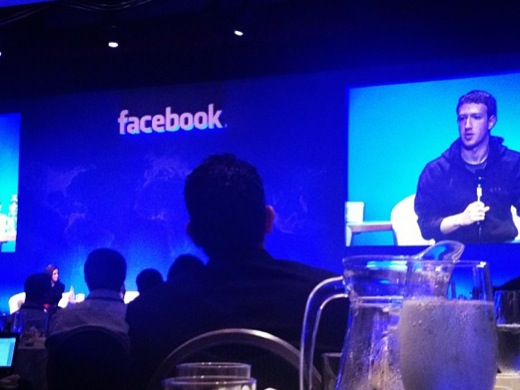I set up a Facebook account once a couple years ago so that I could have a look around the site and see if I thought it was worth it. I didn’t think it was. In addition to allowing someone as dubious as Mark Zuckerberg to be controlling my Internet experience–owning it, really–I didn’t like the artifice of how people represented themselves. And I thought that maybe the past should be past. Maybe every day shouldn’t be a high school reunion and reconnecting to an earlier time shouldn’t be so easy. Maybe when destroying chronology is easier, progress is more difficult.
From “The New Too Big To Fail,” a Medium essay by Feroz Salam about a corporation that is often thought to be something more noble:
“More so than we ever did with the banks, we’ve bought into the myth of the gentle technology giants. There’s a long history of (sometimes unjustified) mistrust in finance, built on hundreds of years of its waxing and waning influence on world affairs. The technology companies are newer and friendlier entities, run by young ‘nerds’ who seem less threatening and more involved in apolitical technical engineering. In ‘Zuck’ we trust.
The eternal reality, of course, is that apoliticism is a myth. Google, Facebook et al. have increasingly had to grapple with social and political issues as the need to stay ethical come up against growth expectations. Google decided that it was OK to censor search results in China for a slice of the pie, and Facebook has had to frame a dubious ‘code of morals’ as to what’s permitted on its pages and what’s not. The entire lot of them have been press-ganged into providing on-demand personal data to the American government. In the interests of market share, Zuck, Sergei, and the rest of their merry crew have shown a cynical willingness to push their users under any bus that’s good for business.
As much as any nation-state, we now also belong to corporate sovereigns: Microsoft, Apple, Facebook and Google. Unfortunately, we have little say in how they are run and ultimately, our own naive enthusiasm is to blame for placing so much of our information where we have no control over it. What’s worse is how completely we have bought into a system where we abide by the arbitrary morals of our new technocratic overlords.
As with the financial crisis, we have to admit our old model of privacy is broken.”
Tags: Feroz Salam

